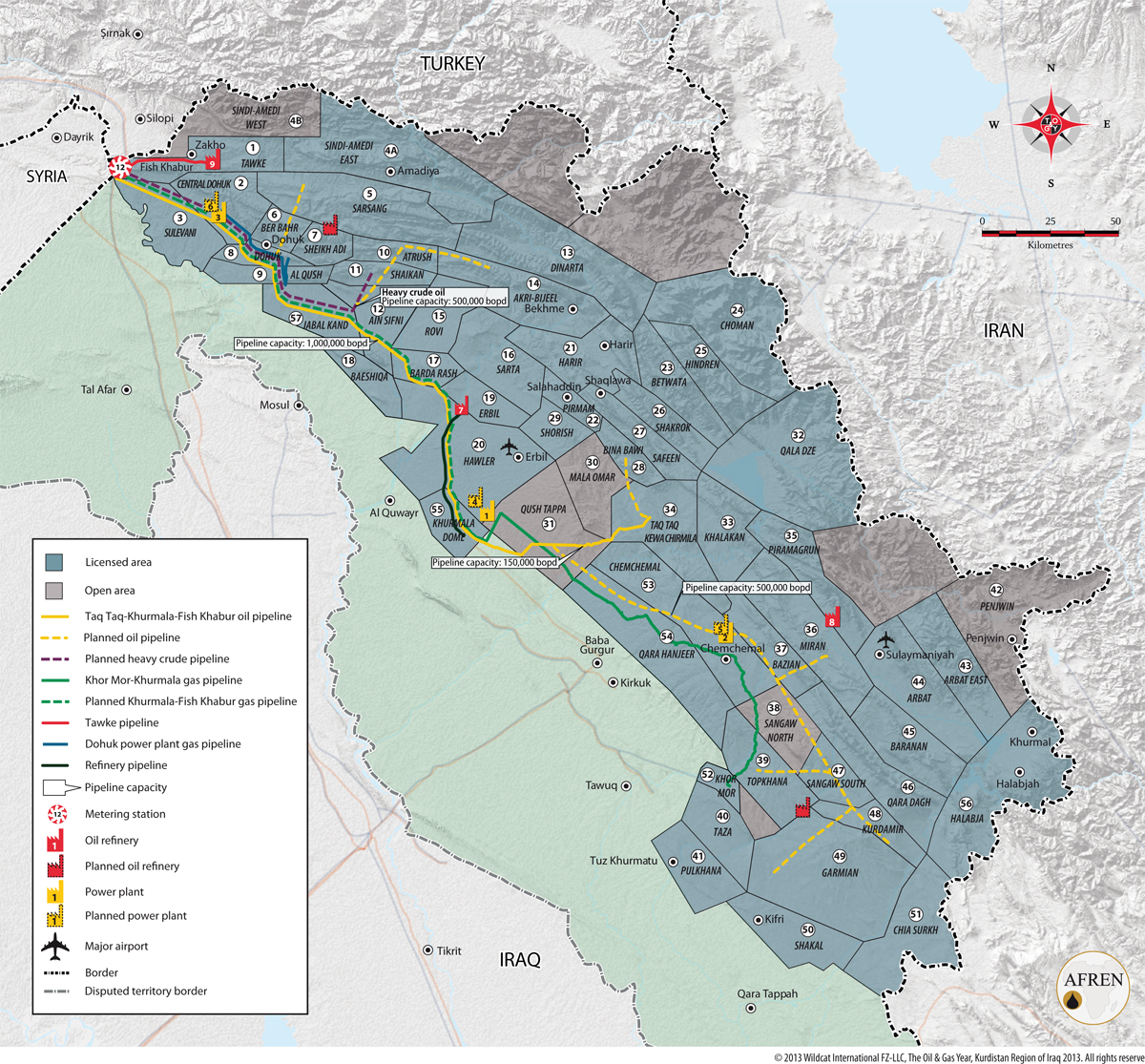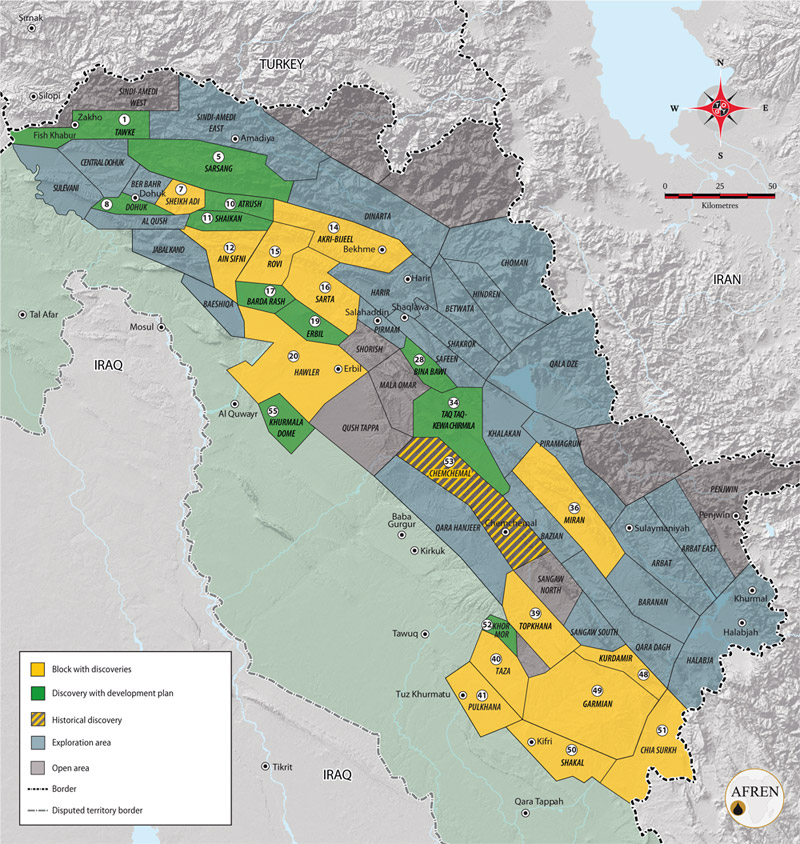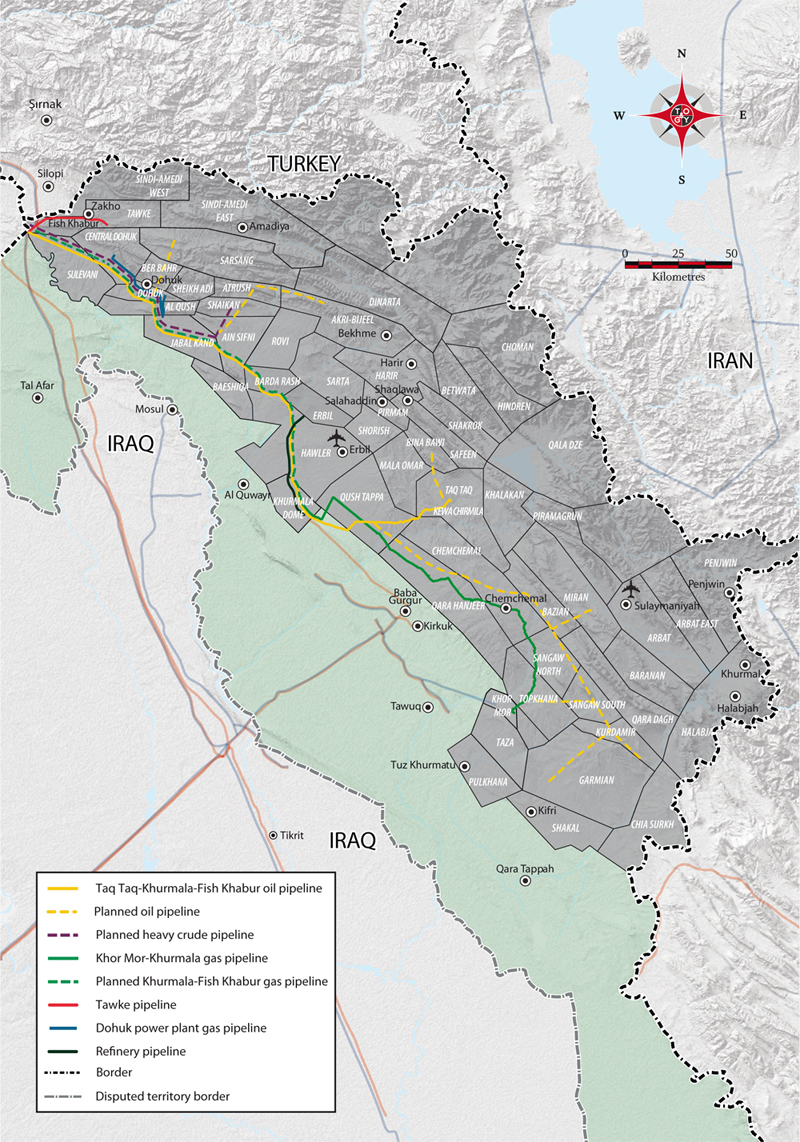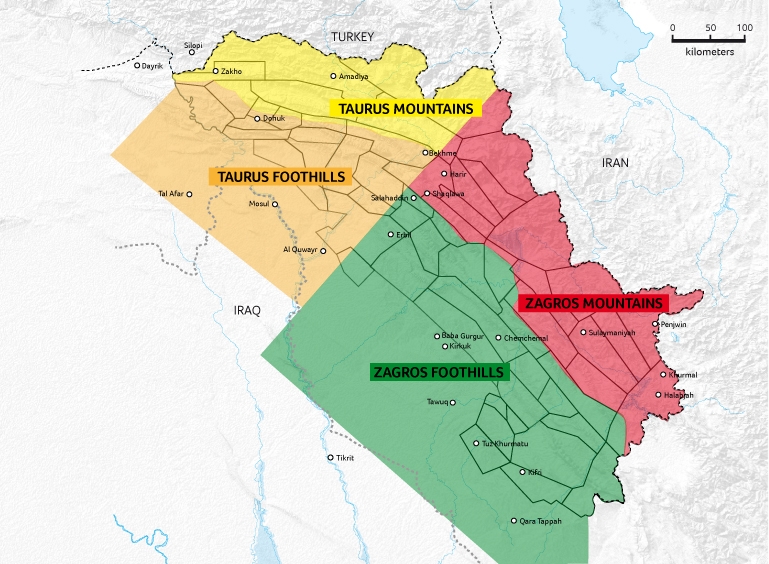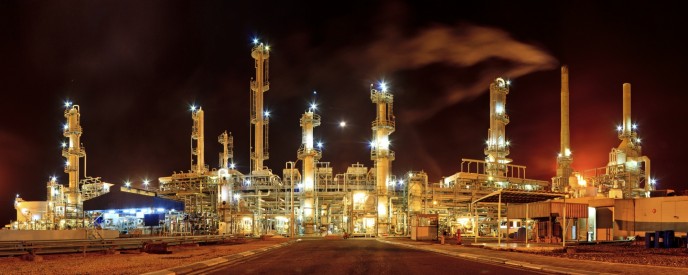
Under an agreement with the Iraqi federal government made in September 2012, the Kurdistan Region is entitled to 17 percent of Iraq’s refined products, and a further 17 percent of Iraq’s crude oil for fuelling power stations. However, the federal government does not supply the Region with its full entitlement to refined products.
To meet our domestic demand and help to serve other areas’ needs in the future, the Kurdistan Region is developing the refining sector. With more investments being made, the Kurdistan Region’s refining capacity will be close to 150,000 barrels of oil per day by the end of 2013, up from 100,000 currently.
These investments will help the Kurdistan Region to meet our domestic demand for refined products of 130,000 barrels a day, and open up the possibility of serving the needs of Iraq’s neighbouring provinces in the future as well.
The Kurdistan Region’s two refineries are owned and operated by the private sector.
Kalak refinery near Erbil city, operated by Kurdish company Kar Group, has a capacity of 80,000 barrels per day currently, with a planned capacity of 100,000 by 2014.
Bazian refinery in Sulaymania governorate, operated by Kurdish company WZA Petroleum, has a capacity of 34,000 barrels per day currently, with a planned capacity of 80,000 by 2014.
In addition, at the Tawke field in Duhok governorate, Norwegian company DNO has a topping plant which prepares crude oil to meet export specifications, with a capacity of 5,000 barrels per day.
International firms are helping the Kurdistan Region’s refineries to upgrade capacity, and it may be possible in the future to increase their complexity so that oil can be converted into lighter products, such as gas or diesel.
Crude oil and gas production will provide ample quantities of feedstock material for future petrochemicals facilities, fertiliser and ammonium plants and other downstream activities. Companies interested in the downstream sector of the Kurdistan Region can contact the Ministry of Natural Resources today.
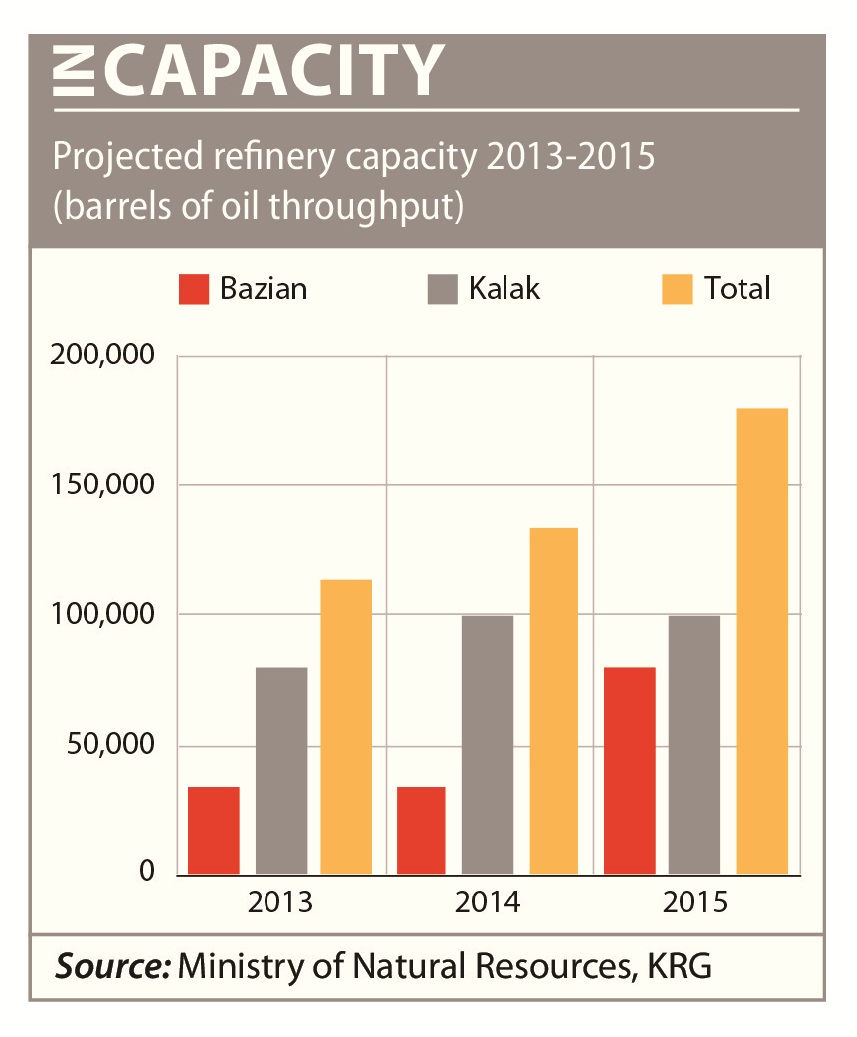
- Details
- Category: DOWNSTREAM
- Published: 25 August 2013
- Hits: 16762
